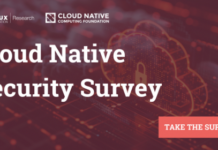Open source cloud computing software startup Eucalyptus has had an eventful past few months:
– In March the Infrastructure-as-a-Service company signed a deal with Amazon Web Services to improve its compatibility with the Amazon API and address customers jointly. This makes Eucalyptus the only cloud vendor to land a formal agreement with the market-leading platform, though it’s not the only one using the API.
– In April the company raised $30 million in Series C funding, setting it on solid financial footing to fuel its rapid expansion says CEO Marten Mickos.
– And Eucalyptus 3.1 is coming soon, marking the company’s shift to a much more open development model and placing it firmly at the center of the open source cloud computing movement.
As part of our ongoing focus on open source cloud, we talked with Mickos about Linux and the open cloud, the role of APIs and where open source cloud computing is headed. The interview is presented in two parts. In part two we discuss Eucalyptus’s business in more detail.
 Linux.com: Open cloud has been gaining momentum in the past few months with the announcement of CloudOpen and activity around OpenStack. What’s driving that attention?
Linux.com: Open cloud has been gaining momentum in the past few months with the announcement of CloudOpen and activity around OpenStack. What’s driving that attention?
Marten Mickos: I think generally speaking people are realizing how important cloud is. And when you look at what’s out there, there’s VMWare and then there’s nothing. And then you have four open source projects: OpenNebula; OpenStack; CloudStack; and Eucalyptus. When you want an alternative you are immediately in open source space.
Linux.com: What has changed in open source cloud computing since you spoke about it a year ago at LinuxCon?
Mickos: Products have matured. It’s following a typical technology adoption lifecycle, described in Crossing the Chasm. We’re still early but we’re less early than a year ago.
Linux.com: In that talk last year you said GPL was vital to Linux, do you see a similar legal framework developing for the cloud yet?
Mickos: It’s an important question but it’s a little philosophical. We have GPL which defines software as free and open. When you go into the cloud it’s not only about source code – it is also about data and API. Today, openness in data and API is up to each vendor – there isn’t yet a common rulebook for it like the GPL is the rulebook for free software.
But I do think we’re seeing de facto standards emerging in cloud. To take Eucalyptus as a specific example, we do the same cloud API as Amazon. We see EC2 as a de facto standard.
Linux.com:The Linux Foundation has announced a new conference this year, Cloud Open, intended to encourage collaboration among open source players in cloud computing. What do you see as the Linux Foundation’s role in the open cloud movement?
Mickos: The Linux Foundation is one of the most central bodies in software in the whole world. We don’t hear much from The Linux Foundation because it’s so well managed. There haven’t been any big conflicts. Linus Torvalds keeps working on the kernel and after 20 years it keeps feeding a huge ecosystem downstream. Just doing that is already amazing.
I don’t think The Linux Foundation feels that it has to take on some mandate. It is important and relevant that KVM and Xen are now part of the Linux kernel. That’s an indication of the importance of cloud. It’s so important to keep Linux in active development in managing all the work from different parties, which is the key mandate for The Linux Foundation.
Linux.com: What about the role of Linux in open cloud?
Mickos: As we get more datacenters running in the cloud the underlying architecture will be Linux. Cloud will mean an increase in the Linux install base. Linux is so well suited for it. It powers already the largest datacenters and as we move to cloud architectures it’s good to have it there. I think cloud will increase the share of Linux on servers.
Linux.com: What’s your outlook on the open source cloud movement in general?
Mickos: Openness is winning in cloud. I was just at a Goldman Sachs cloud conference. Out of 15 companies presenting, ten were open source companies. That’s significant. There’s much more coming and promising startups are scaling in size. Companies like Cloudera, Acquia, Opscode and Puppet Labs.
They have a large install base, they have great customers, and they’re competitive against closed source. It bodes well for the world of open source. It’s important in my mind that open source isn’t just a technology, but that there are businesses who thrive on and around open source. Take Red Hat as an example. People forget how critical it is that they’re successful showing that open source makes business sense. We need such role models and it’s very healthy for the open source community.
Linux.com: You’ve said that we’re in a transitional period in which programming freedom isn’t about source code anymore, it’s about API’s. What do you mean by that? And how does that apply to the open cloud?
Mickos: It is also about source code, but it’s not only about source code. I’m a huge supporter of open source, but the attention is pointing more to the APIs. Ten years ago you’d say that your application runs on Linux. The question now is does your application run on AWS? And of course AWS runs some Linux. But we have reached a new abstraction layer. We are higher up. And we talk about apps running on a specific cloud, not on a specific operating system. It’s difficult to find a public cloud today that doesn’t run on Linux.
Linux.com: Your talk about making API’s open was prescient considering the precedent now being set by Google and Oracle. What is the danger here?
Mickos: I’m not a legal expert so don’t want to comment on the specifics of the lawsuit. But generally speaking there are many products that claim Amazon API compatibility or are developing it.



